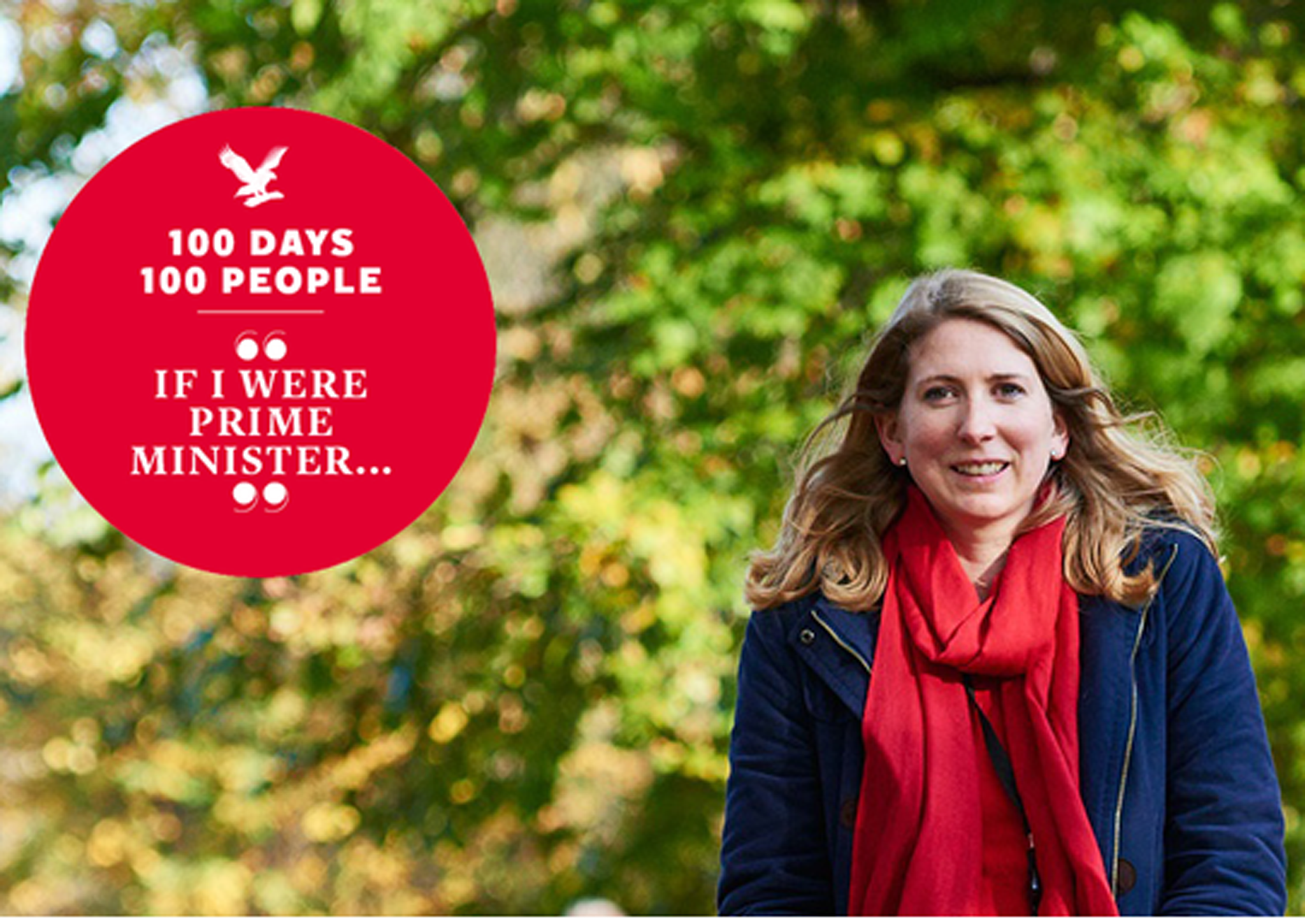If I were Prime Minister: I would make a Teach First equivalent for care for the elderly
Our series in the run-up to the General Election – 100 days, 100 contributors, but no politicians – continues with the Political Editor of the Independent on Sunday


Your support helps us to tell the story
From reproductive rights to climate change to Big Tech, The Independent is on the ground when the story is developing. Whether it's investigating the financials of Elon Musk's pro-Trump PAC or producing our latest documentary, 'The A Word', which shines a light on the American women fighting for reproductive rights, we know how important it is to parse out the facts from the messaging.
At such a critical moment in US history, we need reporters on the ground. Your donation allows us to keep sending journalists to speak to both sides of the story.
The Independent is trusted by Americans across the entire political spectrum. And unlike many other quality news outlets, we choose not to lock Americans out of our reporting and analysis with paywalls. We believe quality journalism should be available to everyone, paid for by those who can afford it.
Your support makes all the difference.The party I would lead doesn’t exist, but it would be a combination of the best, centrist parts of Labour, the Conservatives and the Lib Dems: that is, Blairite, Cameroon and Orange Book. I would prioritise public service reform and be firmly pro-immigration, because without hardworking immigrants our economy would not be what it is. A party for the nation, not a nationalist party.
On public services, I would make it the top priority of my government to increase spending on health and education. Because without investing in our children’s future, and treating the elderly with the respect and care they deserve, we are nothing.
But this programme of government isn’t going to be about splurging money on a sclerotic state. I will slash the still wasteful parts of Whitehall that still exist – and they do exist. I will keep the NHS free at the point of public use, but, where necessary, the private and voluntary sectors - including more mutual-based services - will have a greater involvement in that provision.
Take, for example, state spending on public health – that is, screening, immunisations, smoking cessation and tackling obesity – which costs central government £2.8bn this year. Public health is a vital service to keep people well. Yet the budget is not spent wisely: too much is spent on costly, centralised PR campaigns - £300,000 to Freud Communications on a “Stoptober Talent Fee” alone, for example. Government must ask itself why it spends this huge sum of money on a celebrity who doesn't provide his or her services for free.
More of the NHS budget would be spent on social care, the greatest challenge of our age. Where public services aren’t working – and quite clearly there are areas where they aren’t – there should be greater competition, which isn’t necessarily the same as privatisation.
For the elderly, seeing a doctor is entirely different. While it is easy for younger people to travel to get an appointment, we cannot expect an older person to jump on the bus to another GP. So more money, within the existing budget, will be diverted to more district nurses whose aim will be to keep the elderly out of hospital. And because looking after another human being is one of the greatest, most rewarding things we can do, care for the elderly will be an enhanced, dedicated profession with training and pay on a par with Teach First in education or Frontline for social work.
On education, the schools budget will increase. If we are to better ourselves as a nation, we need to improve children’s education and, yes, this involves spending more money per pupil. But we should also see education and health as interconnected: this means a greater focus on school sport, with enthusiastic, specialised teachers from primary level.
I will remove the married couples’ allowance, which is just Mary Whitehouse social engineering. I will slash the upper rate threshold for the childcare tax break, which at the moment allows couples on a joint salary of £299,998 to qualify. This would save several hundred million pounds.
Instead, I will introduce universal childcare – funding the “maternity gap” between the end of 12-month maternity leave and when free childcare kicks in at the age of three, or, for poorer families, the age of two. This cost would be met by the savings I have set out above. There are, as George Osborne once said, one million women missing from the workforce because of exorbitant childcare costs, particularly in this “maternity gap” period. We need them back, working to make our economy strong. Universal childcare – while not compulsory – is an investment worth making.
Join our commenting forum
Join thought-provoking conversations, follow other Independent readers and see their replies
Comments